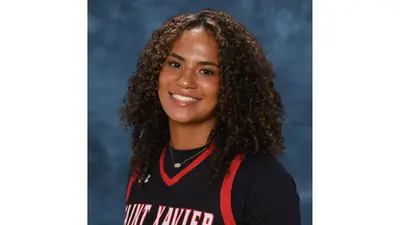DeKalb County Planning & Zoning Committee met Aug. 18.
Here are the minutes provided by the committee:
The Planning and Zoning Committee of the DeKalb County Board met at 6:30 pm in the DeKalb County Legislative Center, Gathertorium, in Sycamore, Illinois. In attendance were: Committee Members: Tim Bagby, Steve Faivre, John Frieders, Jerry Osland, Roy Plote, Craig Roman, and Larry West; and, Community Development Department staff: Derek Hiland and Marcellus Anderson. Also in attendance were: Brian Gregory, DeKalb County Administrator; Greg Millburg, Manager of the DeKalb County Farm Bureau; Jamie Walter; Mary Rita Nelson, representing the League of Women Voters; James Hutcheson; John Lagemann; John Lyon; Linda Tim; and Katherine Andraski.
Call to Order / Roll Call
Mr. Faivre, Planning and Zoning Committee Chair, called the meeting to order.
Mr. Plote moved to allow Mr. Frieders to attend the meeting via Zoom, seconded by Mr. West, and the motion carried unanimously.
Approval of Agenda
Mr. Roman moved to approve the agenda, seconded by Mr. Bagby, and the motion carried unanimously.
Approval of Minutes
None
Public Comments
Mary Rita Nelson, representing the League of Women Voters, indicated that they felt that the setbacks did not need to be changed.
Katherine Andraski read and submitted a statement she prepared describing her objections and concerns regarding the potential negative impacts of large-scale solar development. She particularly pointed out her concerns that the installation of the Owens Creek project may cause a critical failure in the natural gas pipeline which passes through the area of the proposed solar development. She also called for the language to allow battery energy storage systems to be removed from the proposed solar update.
John Lagemann read his statement, which he also indicated had been sent to the Committee and staff via email, in which he elaborated on his belief that Leeward would lack the skills to safely install and properly manage an industrial-scale solar development. His statement also noted his concerns regarding the potential negative impacts of commercial solar development, and recommended that the County adopt a minimum setback ratio of one hundred (100) feet per three (3) feet of height of the solar panels.
Linda Tim submitted and read a statement in which she recommended that the language regarding battery energy storage systems be removed and a moratorium be placed on them until such time as sufficient research can be done on their potential hazards. He asked for greater setbacks for commercial solar projects and also supported the adoption of a minimum setback ratio of one hundred (100) feet per three (3) feet of height of the solar panels. She expressed concerns regarding the impacts and dangers of potential stray voltage from the solar panels. Additionally, she highlighted the need for additional property value studies to be done.
Old Business -
Solar Energy Systems Regulations
Mr. Hiland informed the Committee that they were here to continue the discussion about the proposed changes to the County’s solar regulations, with the intent of having language ready to forward to public hearing.
Mr. Hiland informed the Committee that he had learned that there was some confusion regarding the language of the setback revisions included in the proposed language. He explained that the language had been developed based on the language used in the ordinances granting special use permits to the Samsung projects. He noted that the proposed setback language had been revised so as to provide further clarification. He then utilized a Power Point presentation to provide a detailed explanation of how the proposed setback would be applied. The Committee and Mr. Hiland then discussed the matter until all fully understood what was being proposed.
Mr. Plote moved to direct staff to initiate text amendment proceedings, using the proposed language, to revise the solar regulations of and to establish regulations for battery energy storage systems in the DeKalb County Code, seconded by Mr. Roman.
The Committee then had a discussion regarding the proposed setback from an occupied structure on a nonparticipating property, in particular the merit of the setback, counter proposals, and the impacts of the setback.
Mr. Hiland inquired whether the Committee had any comments on the proposed language regarding landscaping and ground cover developed from suggestions presented by the DeKalb County Soil and Water District. No comments were forthcoming.
Mr. Hiland inquired whether the Committee had any comments regarding the proposed decommissioning language. No comments were forthcoming.
Mr. Hiland then elaborated on the proposed language regarding Battery Energy Storage Systems (BESS), talked about the research done to develop the proposed language, and reminding the Committee about the discussions that had previously occurred on the matter.
Mr. Plote asked for further clarification about the setbacks for BESS, in particular a BESS installed as part of a large solar facility. Mr. Hiland responded by explaining on how the setbacks would be applied, re-utilizing the PowerPoint presentation used previously to explain the proposed solar setbacks.
Mr. Plote inquired whether a BESS installed as part of a solar facility would be required to have its own separate screening if screening was already being provided for the solar facility. Mr. Hiland explained that if the solar facility was already providing screening, the BESS would not need to provide additional screening. Mr. Hiland also noted that each solar facility and BESS would require a special use permit and that the ordinance for the special use permit would have language in it regarding the particular circumstances of that site. Mr. Plote recommended adding additional language to clarify that additional screening would not be necessary. Mr. Hiland agreed that could be done. Mr. Plote then informed the Committee about discussions among solar developers regarding the need for future solar developments to have BESS attached to them, and that he was all for having the proposed language put in, as it would be asking for trouble if the County did not do so.
Mr. Frieders inquired whether the reason to why the proposed language requires BESS built as a part of a solar facility be located in the middle of the development had to do with looks or safety. Mr. Hiland responded that it was mostly for aesthetics, but that safety was also a consideration. He noted that while most modern BESS are designed with internal safety systems, the additional distance from other properties would not negatively impact the safety factor.
Mr. Frieders inquired about why so few counties have adopted ordinances addressing BESS. Mr. Hiland noted that most of his counterparts do not have ordinances addressing these issues and just utilize special use permits to deal with them on an individual basis. He added that most of those he has found with BESS in place have no real performance standards in place regarding them.
Mr. Plote inquired as to what “ancillary equipment” referred to. Mr. Hiland elaborated that such uses were ones that were part of the overall project but subordinate to the primary use.
Mr. Osland inquired whether there was any chance of soil contamination if a BESS unit ruptured. Mr. Hiland noted that he was not an expert in such things. He then related a few incidents he had come across in his research, and talked about how the safety technology for BESS has been advancing to address concerns that have been raised. He admitted that contamination is possible, but re-iterated that he was no expert in that field. Mr. Osland noted that it appears that we are in a learning curve right now.
Mr. Frieders noted that he would rather support the proposed language did not address BESS and only focus on the updates to the solar regulations. Mr. Faivre expressed his opinion that the research done by staff was good, and elaborated on his feelings for why the BESS language should be included. Mr. Frieders commented that the Committee should have started the conversation about BESS back in March, when it first began looking at the updating the solar regulations. Mr. Faivre reminded him that BESS had been brought up as a subject for a while.
Mr. West talked about his concerns regarding the dangers and expense of dealing with lithium fires, and express his belief that the developers should have to shoulder the costs of training emergency responders and providing the necessary equipment. Mr. Hiland noted that there was nothing in the language regarding that, but that he had seen some special use ordinances have conditions of approval with such requirements. He noted that if a BESS came before the County today, the ordinance approving it would have such a condition. Mr. West suggested amending the proposal to add in such language.
Mr. West moved to amend the motion to forward the text amendment to amend the proposed language to include a requirement that the developer of a battery energy storage system bear the cost of training and equipment for a fire/emergency, seconded by Mr. Osland.
Mr. Bagby inquired whether, when talking about fire departments, if they were referring to local or regional departments. Mr. Hiland responded that while many departments would likely respond to the emergency, the primary responsibility and authority for dealing with a fire was on the local department.
A vote was held on the proposed amendment, and it carried unanimously.
The Committee than had a discussion regarding the suggested setbacks for BESS, and how they would, or should, be applied in several circumstances.
Mr. Plote inquired whether an unincorporated community, such as Fairdale, could seek to establish a BESS as a whole. Mr. Hiland responded that it could, but that it would require a special use permit. Mr. Plote noted his belief that there will come a situation where a school or community will want to build a BESS.
Mr. Hiland talked about how conditions that have been continually added to ordinances approving solar facilities were added into the proposed language.
Brian Gregory, DeKalb County Administrator, recommended that the Committee might consider treating the update of the solar regulations and the new BESS regulations as two separate text amendments, and treat them as two separate issues. Mr. Hiland responded by explaining that even though the proposal addresses both issues, in the proposed language presents them as two separate items, and that they would be, strictly speaking, separate text amendments.
A Roll Call Vote was held on the amended motion directing staff to initiate text amendment proceedings using the proposed language, to revise the solar regulations of and to establish regulations for battery energy storage systems in the DeKalb County Code. The motion was carried six to one (JF).
Mr. Hiland noted that the staff will try to get the public hearing scheduled for September 15, 2022, and as per the Committee’s direction, will be scheduling two hearings regarding the matter on that day, one in the afternoon and one in the evening.
Mr. Faivre inquired whether the matter would be able to make it back in time for the Committee’s September meeting. Mr. Hiland responded that the public hearings would be the critical element as to what happens. Mr. Faivre noted that the Committee may have to schedule another special Committee meeting to be able to address the matter in time to forward it to the October County Board meeting.
New Business
None
Other Business
None
Adjournment
Mr. Osland moved to adjourn the meeting, seconded by Mr. West, and the motion carried unanimously.
https://dekalbcounty.org/wp-content/uploads/2022/09/minutes-pz-08182022.pdf





 Alerts Sign-up
Alerts Sign-up